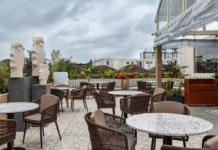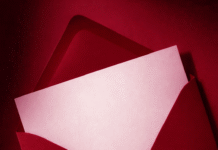Acne happens to be the most common issue that most of us face. It is a never-ending cycle that seems to never come to an end. But with the right pieces of information and the right skincare routine, you can take care of your skin and also decrease the signs of flare-ups.
You should just know that knowledge is power as far as acne treatment is concerned and with that, you can actually combat the terrible attack on the skin time and again. But before we proceed understanding what causes acne is crucial.
What Causes Acne?
Experts opine that most types of acne can be traced back to the 4 primary sources – bacteria, the clogged pores coming from the sticky cells, hormones and oil production. All these have combinations to give rise to different types of acne.
While treating acne you should keep in mind the intensity of your acne in mind rather than just the type. If yours is something more than the occasional breakouts of acne that are inflamed, you should make an appointment with the dermatologist.
Again, if some of your facial area has darkened because of the breakouts or hyperpigmentation then you should start to take care of your skin immediately without any type of hesitation.
Over-the-counter products are the first things that most of us try to control these breakouts and with their usage skin gets clearer within 3 months. So if by a couple of months you are not seeing any change, you should probably be seeking professional help.
Types of Pimples and How to Treat Them
Here are some of the types of pimples that you should be aware of.
- Blackheads – This is a whitehead that when exposed to oxygen oxidises the contents which makes it turn black.
- What to Do – One thing that always works for clearing acne is salicylic acid. It is great for preventing and treating blackheads as they are soluble in oil and the small molecular structure implies that it can penetrate into the pore deep where the acid then breaks the glue down which binds the blockage.Apart from that, you can also use blackhead removers or extractors for doing away with these.
- Whiteheads – This is nothing but a hair follicle that is blocked up by the skin cells that pile up when the follicle opening closes.
- What to Do – Never ever try to pop a whitehead. Instead opt for a topical spot cream. You should also put together retinoid cream as a way to prevent the whiteheads. This stops the dead skin cells from clogging and allows the skin to absorb the treatment better.
- Cyst – The cysts turn out to be redder, larger and more painful than a whitehead.
- What to Do – Like the whiteheads, you should never pop a cyst as these can lead to more inflammation and spread the bacteria. This just implies it takes longer to disappear. It is better to consult with the dermatologist for treating the cystic acne.
- Pimple – This is more or less a bacterial overgrowth that stimulates response to the immunity that creates redness, pain, swelling and sometimes even pus.
- What to Do – For an easy and quick DIY lightly press a lukewarm flannel onto the skin for opening the pores. Then on the blemish dab a piece of ginger or tea tree oil. Both of these products contain anti-inflammatory and antibacterial properties.
- Nodule – Similar to cyst, this is another a serious type of acne. The nodule (just like cyst) happens to be a large, solid, painful lump below the skin surface. However, the lump of sebum and dead skin remain intact, in this case, and it does not come with a head.
- What to Do – The salicylic acid and the retinoids can be used for helping to unclog the trapped debris. But it is best to be treated with the prescription antibiotics or ointments from the doctor.
Apart from these, you should also follow some general skin care tips that will help to avoid and prevent acne. Just take a look.
- Cleanse Daily – Cleansing the skin and treating it twice a day is the best way to keep away the breakouts. On the days that you are too tired for washing the face, keeping the stash of face wipes can be your saviour.
- Don’t Over-exfoliate – Scrubbing the face on a daily basis with exfoliating products can do more harm. When done frequently it can cause inflammation, redness and irritation. With exfoliation, the pimple can pull the healthy skin cells and give rise to a wound and initiate a higher risk of scarring.
- Use Sunscreen Daily – While using sunscreen is a must, checkout the SPF and make sure that it does not clog the pores.
- Moisturize – If the skin is dehydrated and dry, the oil glands tend to overproduce the oil and it can worsen the acne. Hydrating the skin can re-balance the oil glands and assist to control acne and augment the healing. Use the best anti ageing serum and cream for helping with your acne.
- Opt for Healthy Diet and Drink Plenty of Water – You should drink plenty of water and healthy diet enriched with leafy greens and brightly-coloured fruits that are rich in antioxidants. Limit the intake of dairy products.
By following the above you can prevent the breakouts to a great extent. But if the symptoms persist, you should consult with your dermatologist without thinking twice.




















